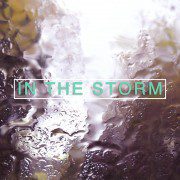ODJ: YOLO
July 11, 2013
READ: Ecclesiastes 3:1-8
Since we died with Christ, we know that we will also live with Him (Romans 6:8).
Who wrote the oldest lyrics for a #1 hit song? In 1965 the folk rock band The Byrds covered Pete Seeger’s song “Turn! Turn! Turn!” That song made it to #1. Almost all the lyrics are straight out of Ecclesiastes 3, making them 3,000 years old. King Solomon, Ecclesiastes’ author, should get royalties!
The song’s success is indicative of the Bible’s timelessness. Ecclesiastes is a book for all seasons, exposing our human condition. But the book can also sound fatalistic. Listen to the incessant beat of its poetry:
A time to be born and a time to die. A time to kill and a time to heal. A time to grieve and a time to dance. A time to love and a time to hate.
A time to kill? A time to hate? Are bad things just as valid as good things? What is Solomon saying? Tellingly, Solomon starts his book by writing these hopeless words: “Everything is meaningless . . . completely meaningless!” (Ecclesiastes 1:2). One logical inference from that premise is this: “I recommend having fun, because there is nothing better for people in this world than to eat, drink and enjoy life” (8:15).
A text acronym making the rounds today is YOLO: You Only Live Once. That trendy acronym sounds like Solomon. But the party philosophy glamorises risky behaviour in lieu of promoting a healthy zest for living. It’s a thin but crucial line. Without a reason to live—without a true purpose in life—we miss the importance of life’s seasons.
That’s the wisdom of those ancient song lyrics. When we ponder that there’s a season for everything, including a time to die, we can begin to appreciate the truth that life’s big questions have answers that lie outside of ourselves.—Tim Gustafson
Matthew 13:44-52 ‹
What do we learn about death and a second life in Romans 6:5-11?
What do Solomon’s words “a time to die” mean to you? How do they affect the way you’re living today?









